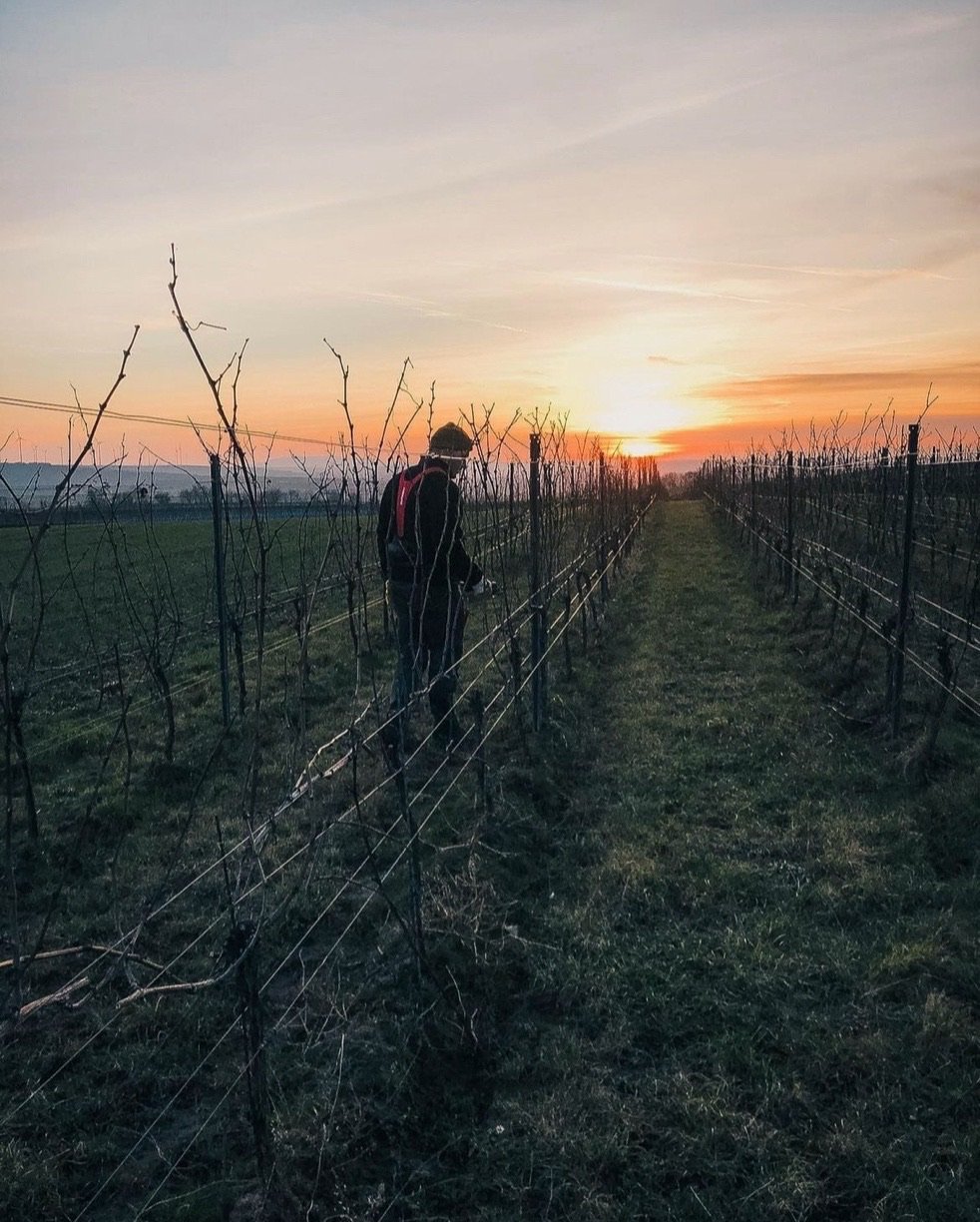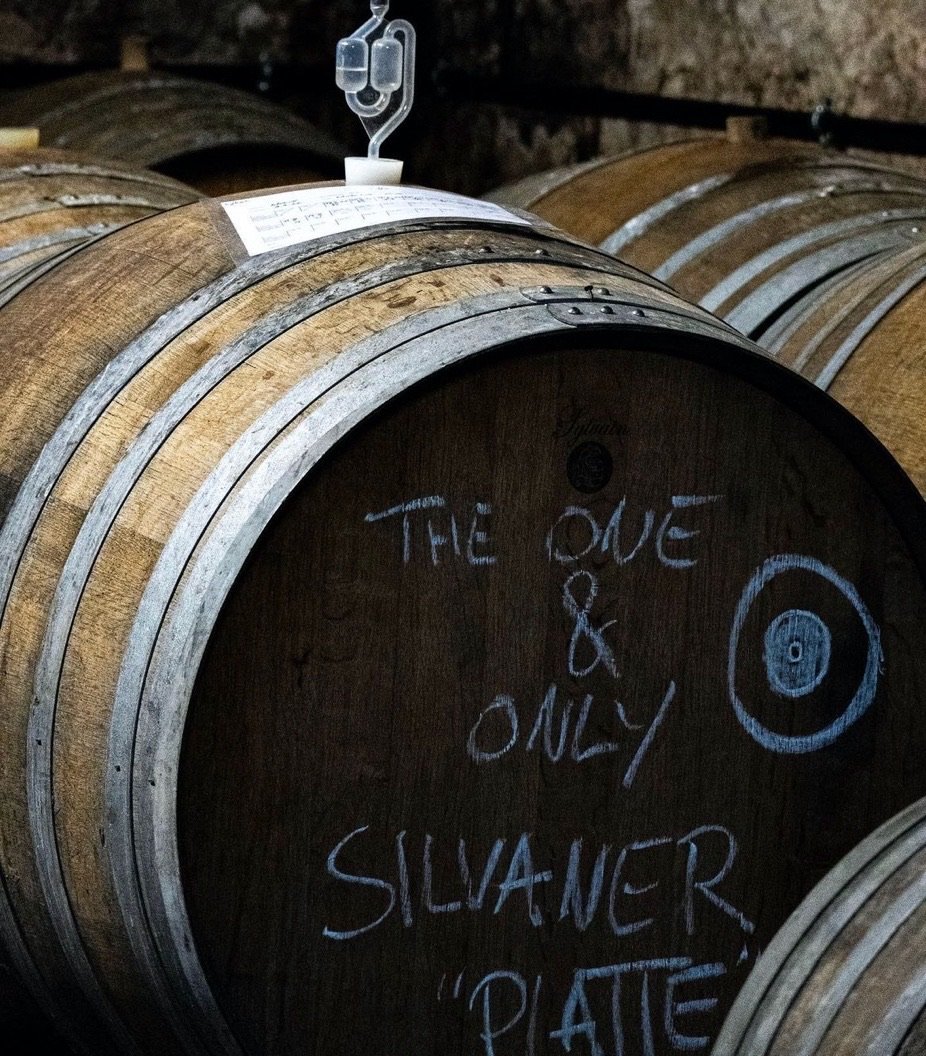Dominik Held
Dominik Held doesn’t know when his family arrived in the Rheinhessen, but there’s a coat of arms at his home with the date 1604 on it—he’s not sure if they’ve been winegrowers for that long, but it gives you a sense of Held’s sense of belonging to the region. Dominik’s grandfather was a farmer and planted the family land in a polycultural fashion; in addition to twenty hectares of vines, there are still fields of barley and other grains and fruit in production. But a few things shifted Dominik’s individual course: first, he attended Geisenheim, and had some friends there introduce him to natural wine; then a very influential internship with natural winemaker Andreas Gsellman in Burgenland helped Dominik clarify a vision of peeling away some of the family land to vinify for the first time.
This isn’t an unusual tale for us at Coeur; we’re happily following the global trend of young people newly exploring their homelands through small wineries, great farming, and thoughtful vinification. But Dominik’s wines are special. He started out with 1.5 hectares in 2020; that was his first proper vintage, though a year or two of experimentation came first. We’re beginning work with the 2021s, and it’s remarkable how potent these wines are in just their second year. Dominik attributes all of this to the specificity of the soil types where he’s working in his home village of Dolgesheim, which are proper ocean marl (at 20-30% pure limestone content!), along with clay and loess.
The Jurassic part of the soils here ends up expressing in the wines exactly the way you hope it might: these are wines with a lot of power and body, but humming underneath each cuvée is distinctive, persistent, almost slick salinity. They are striking in how much they remind one of the ouillé styles from the Jura, and this in just two vintages of organic farming, native ferments, and long élevage before bottling (Dominik hopes to give all the wines around 18 months of aging in neutral wood as he develops; for now everything gets around a year). The wines are dense and reductive on first opening, but if they get a few hours of air, they are kaleidescopic: colorful, wild, big.
As of this writing, Dominik is currently tending to five hectares total from his family farm; we’re thrilled to receive little bits of the whole lineup of the wines, many vinified by variety—the Scheurebe and Silvaner are unlike any others we know in Germany; the Weissburgunder/Chardo combination reminds of us both people like Labet but also Dominik’s good friend Moritz Kissinger, who works in the same region. We’re tickled to introduce Dominik to our corral here and can’t wait to see what the next vintages hold for our new friend. Don’t miss these!



